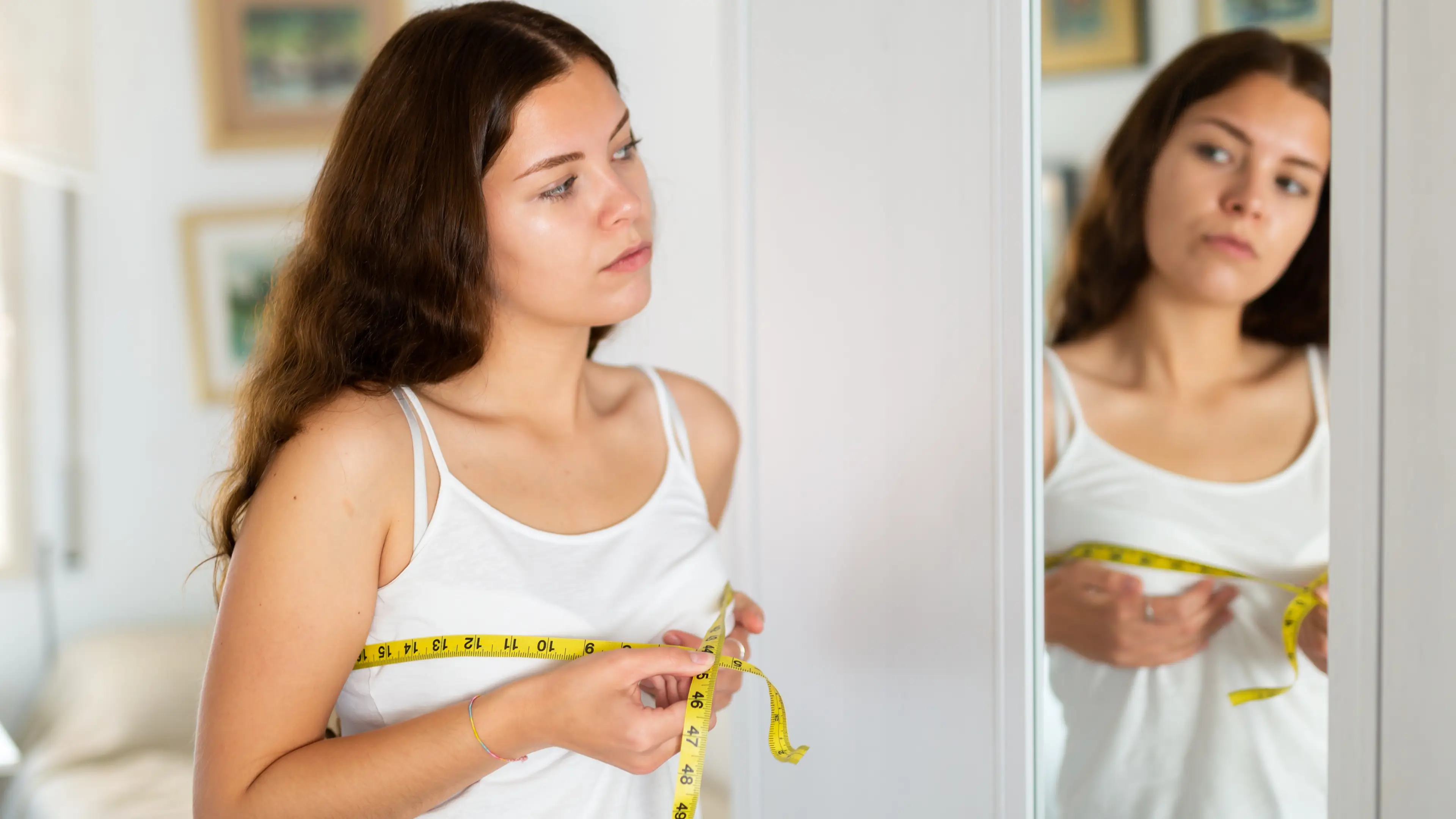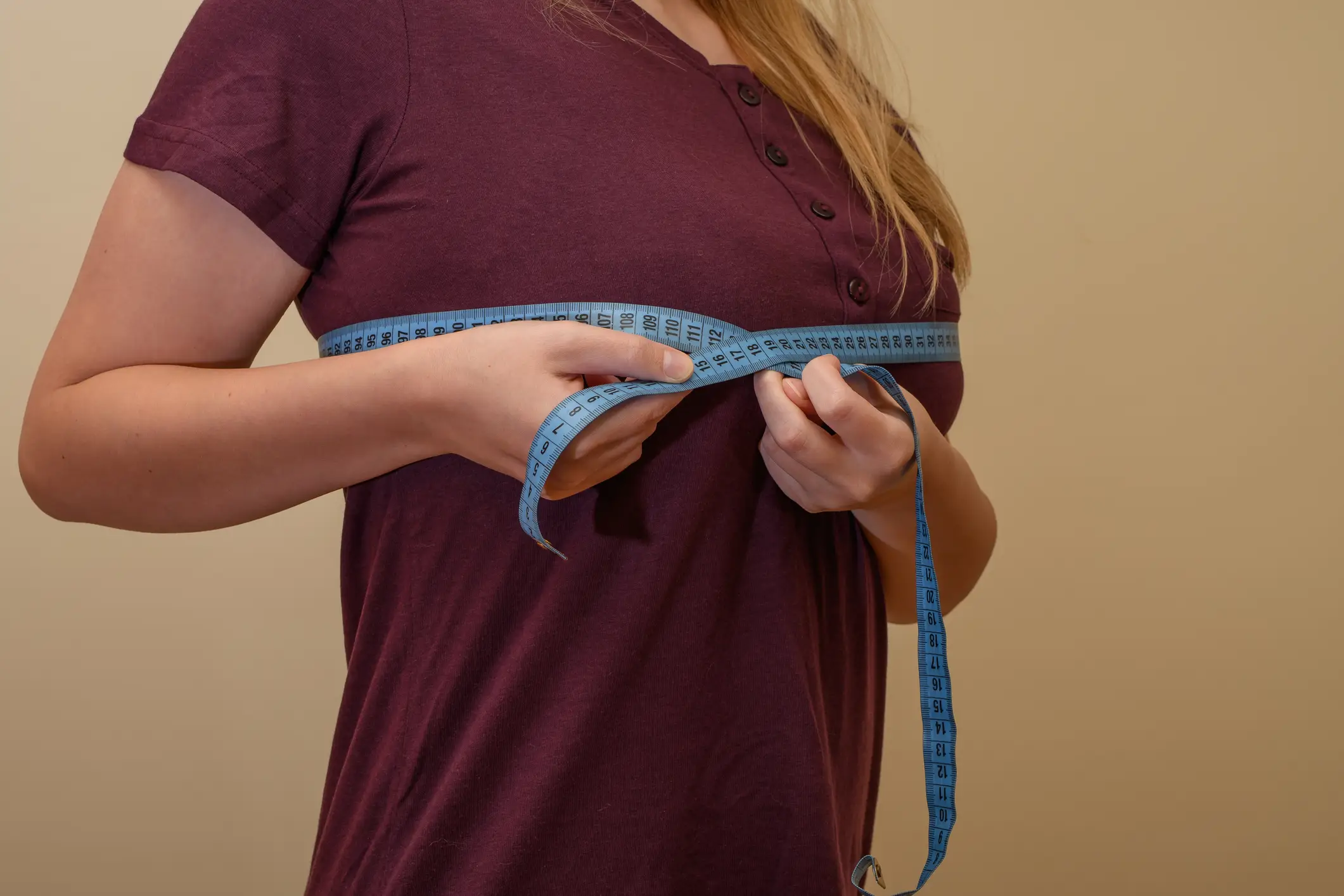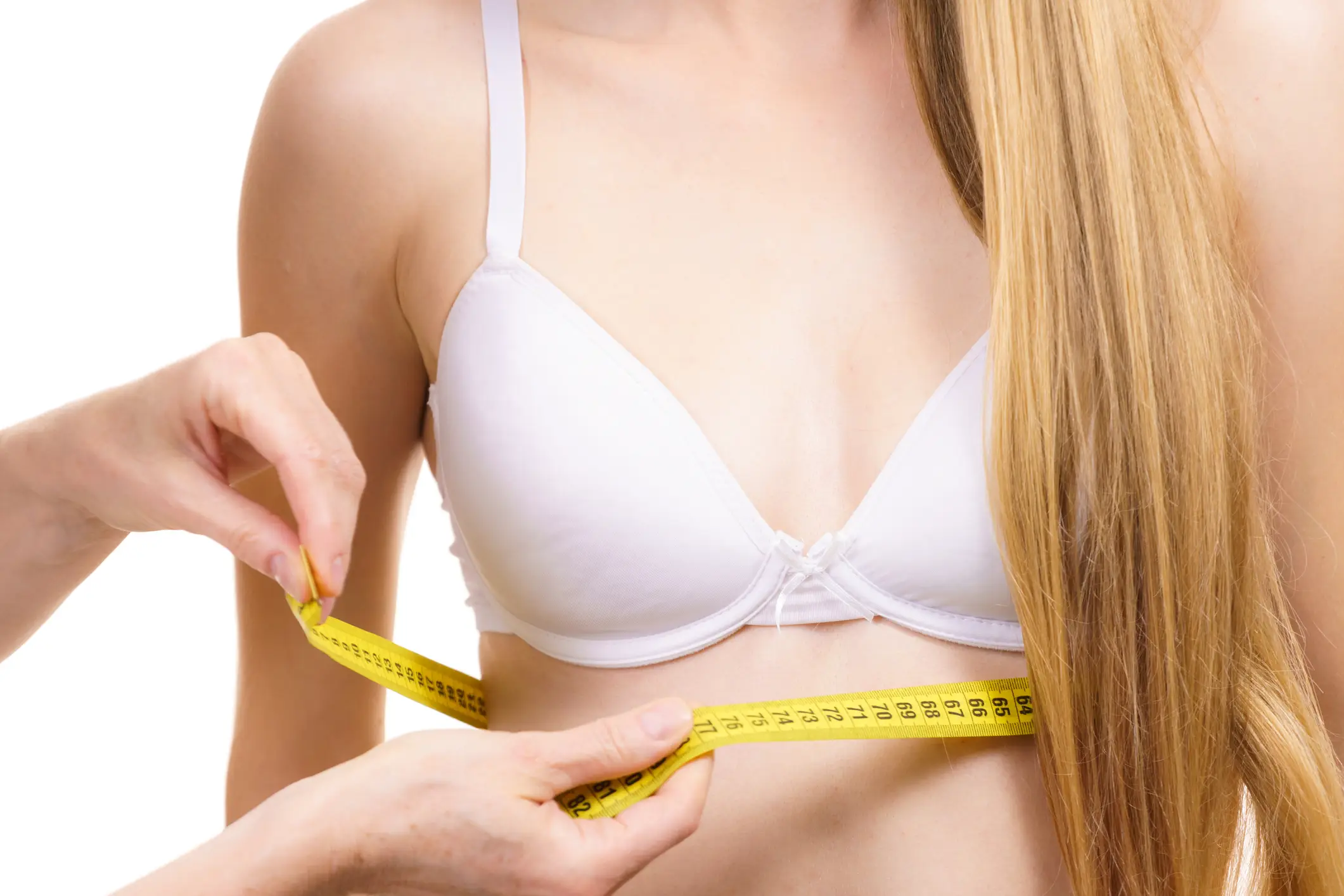
Our bodies continue to change throughout our lives for all sorts of different reasons, but some experts have honed in on one particular area that you might be wondering about - the boobs.
Lots of tweens can't wait for the day their bodies start to become a bit more adult - little do they know how good they've got it at the time, with their fast metabolisms and non-aching joints.
Further down the line, some people with boobs might long for the day they stop getting bigger, after being forced to fork out money for new bras and left with back pain from carrying them around all day.
Breasts can grow or shrink if you gain or lose weight, but experts have revealed a general age for when they naturally stop growing. So, if you're still holding out hope for an extra cup size or two, you might need to start embracing your boobs as they are, instead.
Advert

What are the stages of breast development?
According to the Cadogan Clinic, there are typically five stages of breast development that occur in our lives:
- Prepubertal Stage - as the name suggests, this is the stage before any visible signs of puberty, when breasts are flat
- Breast Bud Stage - this is a pretty formative moment for a lot of youngsters - the stage in which breast growth begins. This usually takes place between the ages of 8 and 13, and involves small bumps, known as breast buds, which form behind the nipple and indicate the start of growth
- Continued Growth - following on from the initial breast bud growth, breasts then continue to grow and expand over the next couple of years, during which time the areola also begins to darken and enlarge.
- Secondary Mound Stage - in later teenage years, the nipples and areola form a secondary mound above the rest of the breast
- Mature Adult Breast - this fifth and final stage occurs when breasts reach their adult size and shape, and the secondary mound blends into the shape of the breast as a whole.

At what age does breast growth stop?
So, how old are you when you officially have a 'mature adult breast'?
According to the Clinic, this stage hits usually around the late teens or early twenties. So if you're mid-twenties or above, chances are your breasts are yours for life.
However, it's worth noting that everyone is different, so some may notice their breasts stop growing earlier, or continue growing later.
Factors including hormones, genetics, overall health and nutrition can also have an impact on breast growth.